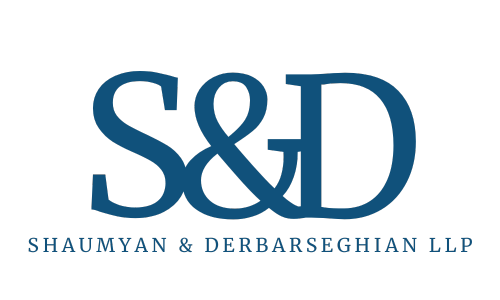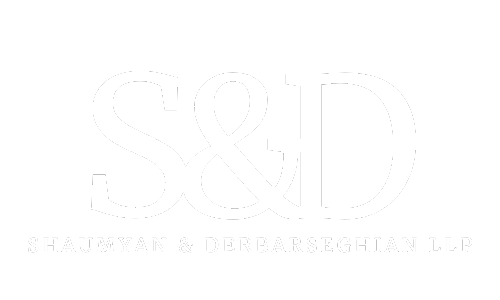
If you’re involved in a personal injury case, California’s Code of Civil Procedure Section 998 offers may come into play. These offers are powerful tools that can influence the financial outcomes of a case. They’re specifically designed to encourage parties to settle before trial, which can save both time and money. But what happens if you reject a Section 998 offer and the case doesn’t go as planned? Understanding how these offers work and their impact on attorneys’ fees and costs is crucial.
What is a Section 998 Offer?
Section 998 of the California Code of Civil Procedure allows either the plaintiff or the defendant to make a formal offer to settle a case before it goes to trial. This pre-trial offer aims to motivate both parties to consider fair settlements by attaching financial consequences to rejected offers.
- Why it Matters: A Section 998 offer is more than just a proposal—it’s a legal strategy to avoid the uncertainties of a trial. If a party rejects a 998 offer and the final trial outcome is less favorable to them than the offer, they may face costly penalties.
How Section 998 Offers Work
A Section 998 offer must meet specific requirements. It needs to be in writing, with clear terms, and must give the other party a set time to accept or reject the offer. Here’s how the process unfolds:
- Making the Offer: Either side in the case can submit a 998 offer to the other party with a proposed settlement amount.
- Accepting the Offer: If the receiving party accepts the offer within the specified timeframe, the case settles according to the agreed terms, avoiding further litigation.
- Rejecting the Offer: If the offer is not accepted, the case proceeds to trial. Here’s where Section 998 adds a layer of risk: if the rejecting party does not achieve a better outcome at trial, they may be responsible for additional costs.
Consequences of Rejecting a 998 Offer
The most significant aspect of a Section 998 offer is the financial impact if the case goes to trial and results in a less favorable outcome than the offer. Here’s how it plays out for each party:
If the Plaintiff Rejects the Defendant’s 998 Offer
- If a plaintiff rejects a 998 offer and fails to win a larger award at trial, they could face financial consequences.
- The plaintiff may be required to pay the defendant’s post-offer court costs, which can significantly reduce their compensation.
- In some cases, this could mean that a portion of the awarded damages is allocated toward the defendant’s costs, which impacts the plaintiff’s final recovery.
If the Defendant Rejects the Plaintiff’s 998 Offer
- When a defendant rejects a 998 offer and the plaintiff ultimately wins a larger judgment than the offer, the defendant may be responsible for the plaintiff’s post-offer costs.
- These costs can include significant expenses such as expert witness fees, which can be substantial in personal injury cases.
- The risk of owing additional costs creates financial pressure on defendants to offer fair settlements.
Attorneys’ Fees and Expert Witness Costs Under Section 998
One of the most impactful aspects of Section 998 is its effect on costs related to expert witnesses. Unlike typical cases where each party pays its own expert fees, a rejected 998 offer can shift these fees to the party who turned down the offer if they don’t secure a better outcome at trial. Here’s how it affects each side:
- Plaintiff: If the plaintiff rejected a fair 998 offer and doesn’t win more at trial, they may be liable for the defendant’s expert witness fees, adding to the financial burden.
- Defendant: Conversely, if the defendant rejects a 998 offer and the plaintiff wins a larger judgment, the defendant may have to cover the plaintiff’s expert costs, which can be substantial.
The potential for these added costs creates a strong incentive for both parties to weigh offers carefully. Expert witness fees alone can amount to thousands of dollars, and Section 998 encourages each side to consider the financial risks of going to trial.
Key Considerations for Making and Responding to a Section 998 Offer
A Section 998 offer is not just a routine proposal—it’s a strategic tool that can significantly impact the outcome of a case. Here are a few tips to keep in mind:
- Realistic Offers Matter: A 998 offer should be fair and reasonable based on the facts of the case. An offer that is too low or too high may not be taken seriously, and it could backfire if the case goes to trial.
- Evaluate Potential Outcomes: Both sides should carefully consider the possible trial outcomes. If there’s a chance that a jury could award less than the offer, it may be wise to accept the 998 offer rather than risk additional costs.
- Financial Consequences: Understand that rejecting a 998 offer can have serious financial consequences. Consulting with a legal professional to evaluate the risks and benefits is crucial.
Conclusion: Using Section 998 Offers Wisely in Your Case
Section 998 offers are a valuable tool in California personal injury cases, encouraging both parties to resolve matters outside of the courtroom. By understanding how these offers impact attorneys’ fees, expert witness costs, and other financial factors, you can make informed decisions about whether to accept or reject an offer.
Ready to Learn More?
If you’re facing a personal injury case and have questions about Section 998 offers, our team can provide guidance. Contact us to discuss your case and explore the best path forward.

